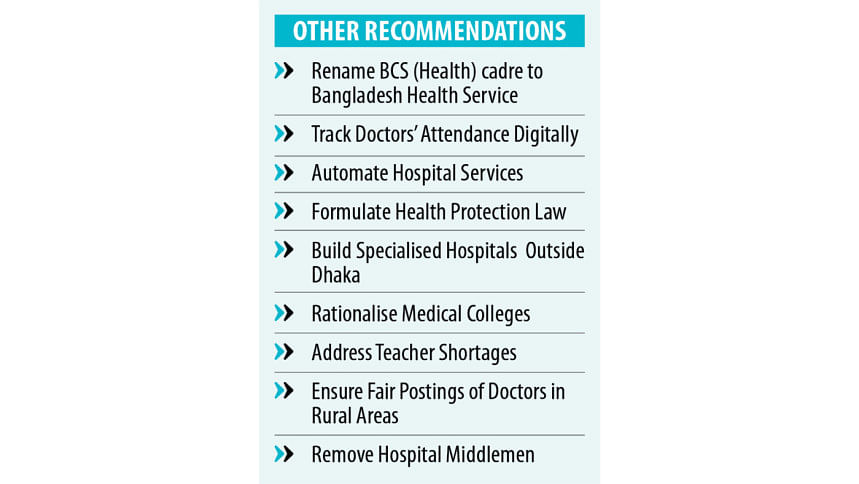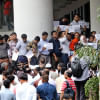Reform commission proposes separate PSC for health

The Public Administration Reform Commission has proposed renaming the BCS (Health) cadre as the Bangladesh Health Service, alongside the establishment of a separate Public Service Commission (Health) to oversee recruitment, promotions, and related activities.
The commission, in its report submitted to Chief Adviser Dr Muhammad Yunus on February 5, suggested reforms aimed at streamlining healthcare services and enhancing efficiency. Abdul Muyeed Chowdhury, chairman of the commission, presented the report with 23 recommendations, categorised into one long-term, 18 mid-term, and four short-term measures.
Key Proposals for Reform
Among the short-term plans, the creation of a separate PSC for health was emphasised, with a focus on renaming services to reflect their specific characteristics, moving away from the existing BCS cadre system.
To improve governance, the commission recommended strengthening in-person supervision and introducing digital attendance tracking. Disciplinary actions would be enforced for unauthorised absences.
The commission also suggested prioritising initiatives to uphold the dignity of both government and private hospitals, alongside the full automation of hospital operations. Daily admission numbers for each department should be displayed on information boards to ensure transparency.
Health Protection Law
A proposed health protection law seeks to balance the interests of doctors, healthcare providers, and patients. The report calls for a high-level task force to deliberate on the law, as detailed in Chapter Thirteen, titled "Special Recommendations for the Reform of Bangladesh Health Service".
This chapter also highlights the need for workforce development, reforms in health management, and findings from surveys on the healthcare sector.
Long-Term and Structural Reforms
The sole long-term proposal prioritises establishing specialised healthcare institutions outside Dhaka to decentralise services. Rationalising the number of medical colleges and students based on resources, population, and geography was also recommended.
The commission called for improving the quality of existing medical colleges and addressing teacher shortages in medical education. It further proposed separating healthcare services and medical education into two distinct divisions under separate management structures.
Addressing Rural Healthcare Gaps
The report noted that the absence of guidelines for government doctors pursuing higher education complicates retaining them in rural areas. Introducing a digital e-logbook system for fair deputation policies, postings, and promotions based on rural service tenure was recommended.
Strategic workforce planning, policy reforms, and technological solutions were also highlighted as ways to balance rural healthcare demand and service delivery.
Tackling Middlemen and Ensuring Transparency
To eliminate the influence of middlemen in hospitals, the commission recommended full automation of services. It also urged displaying daily patient numbers on digital dashboards for transparency in both government and private hospitals.
Besides, the commission encouraged pharmaceutical companies to contribute to government hospitals by providing free medicines as part of their CSR initiatives.

 For all latest news, follow The Daily Star's Google News channel.
For all latest news, follow The Daily Star's Google News channel. 








Comments